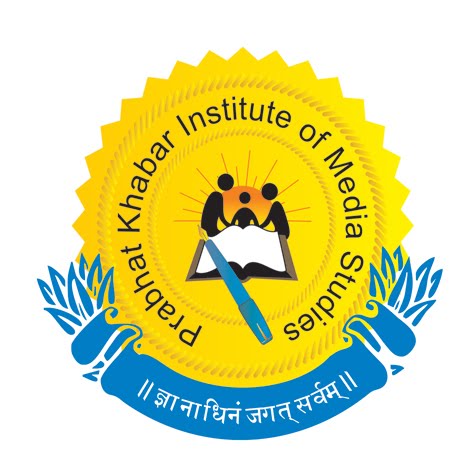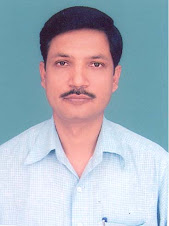Friday, October 22, 2010
Tuesday, December 29, 2009
Wednesday, December 23, 2009
Guest Lecture






PKIMS Ranchi has conducted guest lectures for the current session. In this guest lecture series the renowned personalities have provided their precious time and knoledge to the students from their experiences. Some names are
Dr. Shailesh Pandit, Director, Doordarshan, Ranchi Kendra
Mukhtiyar Singh, Retd IAS
Pamela Philipose, Director, Women Feature Service, Delhi
Manoj Tiwari, Famous actor and singer
Dr Shahid Hassan, Head of Deptt. Pschycology Deptt. Ranchi University.
Prabhat Khabar Institute of Media Studies

Affiliated to Bharatiya Vidya Bhavan’s RP Institute of Communication & Management, Mumbai
As we move in to the ‘Information age’, the mass media have become a major force in society and the effects of mass communication are very large. We have more access to information and our reach to information is increasing everyday, as well as, to the means of information. During the past decade, there has been a great revolution in communication systems, although language press is still having and playing its main, decisive role in rural India.Journalism education is not a new subject for our country. The first formal journalism course was started in 1941, in Punjab University (Now in Lahore, Pakistan). After Independence, it shifted to Chandigarh. In 1948, Journalism course was also started in New Delhi. By 1961, the number of Universities grew up to six, which were offering education in journalism. By the end of the 20th century, hundreds of institutions were visible is the field of media education. Whether different Journalism and Mass Communication Departments of various universities offering degree-diploma, M Phil and PhD is the subject, a lot of private institutions also claim to give training and education. But unfortunately, the growing number of media education institutions manifested more in quantitative terms rather than qualitative. It was felt that despite a lot of trained and certificate holder youth came out from these institutions every year, requirements of well-trained and capable young journalist was still continued in various media houses. In fact, a good number of vacant posts were filled from non-certificate holders.In this process, various prominent media houses were compelled to start their own training centers from very beginning, either formal or informal. Prabhat Khabar was facing the same challenges, and it was more deep because the young journalist trained from big cities were less interested to have a job in a small city like Ranchi. Therefore, we had to trained our own team and the process was going on since more than ten years.The year 2001 witnessed the creation of a new state ‘Jharkhand’ and the role of mass media become more important as the expectations of the people was naturally very high. As the main player in the field of mass media in the new state Jharkhand – with three publishing centers and having largest circulated daily ‘Prabhat Khabar’––We had to cater the need of society. We had the challenge to develop young, energetic and capable group of journalists with a clear vision for servicing the society to meet the expectations of the people, as well as to fulfill the needs of the state.The PK Institute of Media Studies was established in the year 2002, and this was a formal initiative towards it. Despite a number of institutions were visible here and neighboring states for study of journalism; there was a serious gap between theory and practice. The problem was very clear. Lots of degree and diploma holders having old design of journalism education with less knowledge of the real media world were not to be relied on. Although we were recruiting them for years and we were to give them fresh and complete in-house training to make them able to do there job well. This was the process of building of this institution.We started with the aims and objectives to equip the candidates with the latest available knowledge in the field of mass communication, to impart adequate professional knowledge and skill, so as to enable them to take up the needs of language press.
As we move in to the ‘Information age’, the mass media have become a major force in society and the effects of mass communication are very large. We have more access to information and our reach to information is increasing everyday, as well as, to the means of information. During the past decade, there has been a great revolution in communication systems, although language press is still having and playing its main, decisive role in rural India.Journalism education is not a new subject for our country. The first formal journalism course was started in 1941, in Punjab University (Now in Lahore, Pakistan). After Independence, it shifted to Chandigarh. In 1948, Journalism course was also started in New Delhi. By 1961, the number of Universities grew up to six, which were offering education in journalism. By the end of the 20th century, hundreds of institutions were visible is the field of media education. Whether different Journalism and Mass Communication Departments of various universities offering degree-diploma, M Phil and PhD is the subject, a lot of private institutions also claim to give training and education. But unfortunately, the growing number of media education institutions manifested more in quantitative terms rather than qualitative. It was felt that despite a lot of trained and certificate holder youth came out from these institutions every year, requirements of well-trained and capable young journalist was still continued in various media houses. In fact, a good number of vacant posts were filled from non-certificate holders.In this process, various prominent media houses were compelled to start their own training centers from very beginning, either formal or informal. Prabhat Khabar was facing the same challenges, and it was more deep because the young journalist trained from big cities were less interested to have a job in a small city like Ranchi. Therefore, we had to trained our own team and the process was going on since more than ten years.The year 2001 witnessed the creation of a new state ‘Jharkhand’ and the role of mass media become more important as the expectations of the people was naturally very high. As the main player in the field of mass media in the new state Jharkhand – with three publishing centers and having largest circulated daily ‘Prabhat Khabar’––We had to cater the need of society. We had the challenge to develop young, energetic and capable group of journalists with a clear vision for servicing the society to meet the expectations of the people, as well as to fulfill the needs of the state.The PK Institute of Media Studies was established in the year 2002, and this was a formal initiative towards it. Despite a number of institutions were visible here and neighboring states for study of journalism; there was a serious gap between theory and practice. The problem was very clear. Lots of degree and diploma holders having old design of journalism education with less knowledge of the real media world were not to be relied on. Although we were recruiting them for years and we were to give them fresh and complete in-house training to make them able to do there job well. This was the process of building of this institution.We started with the aims and objectives to equip the candidates with the latest available knowledge in the field of mass communication, to impart adequate professional knowledge and skill, so as to enable them to take up the needs of language press.
Subscribe to:
Posts (Atom)










